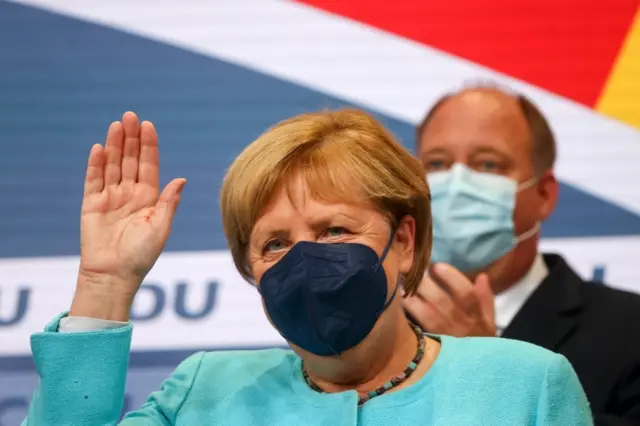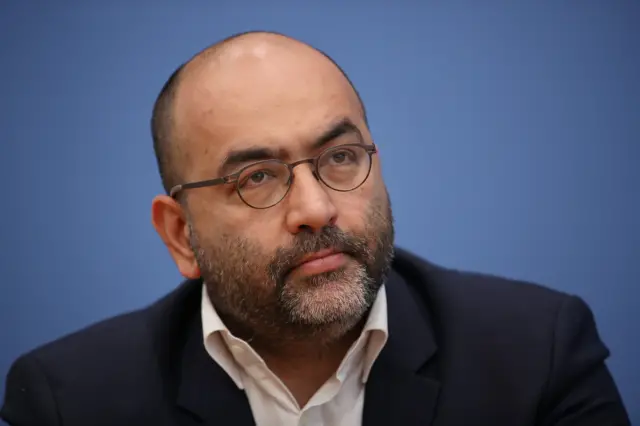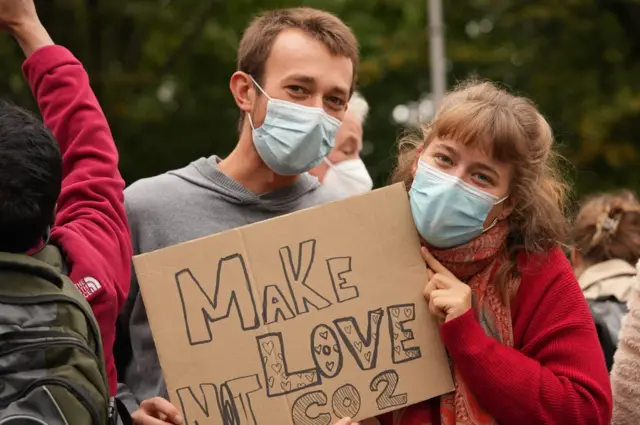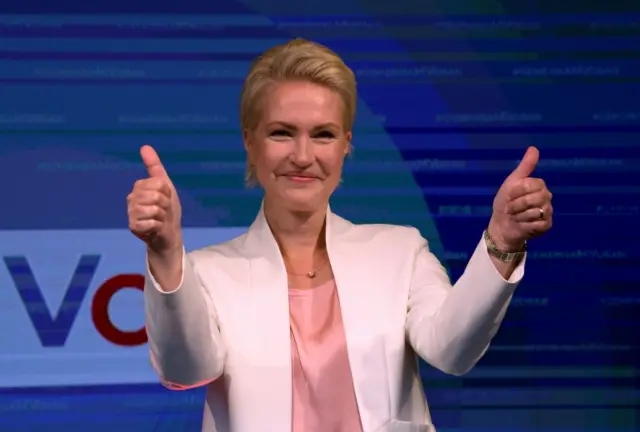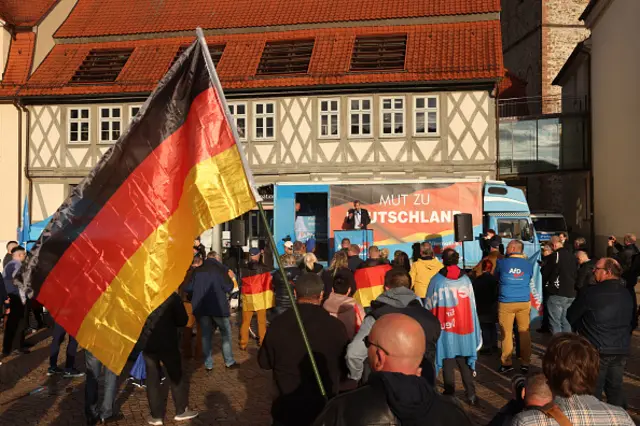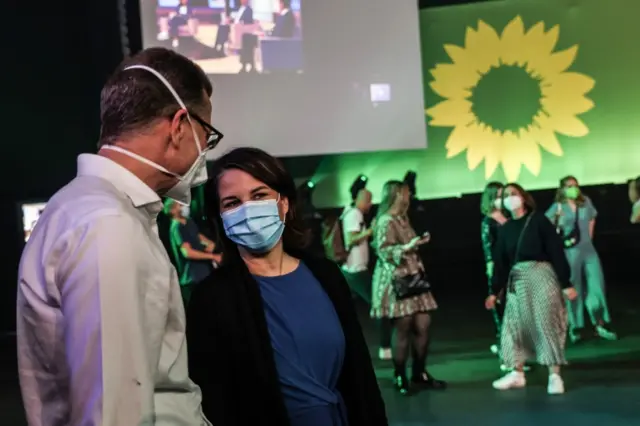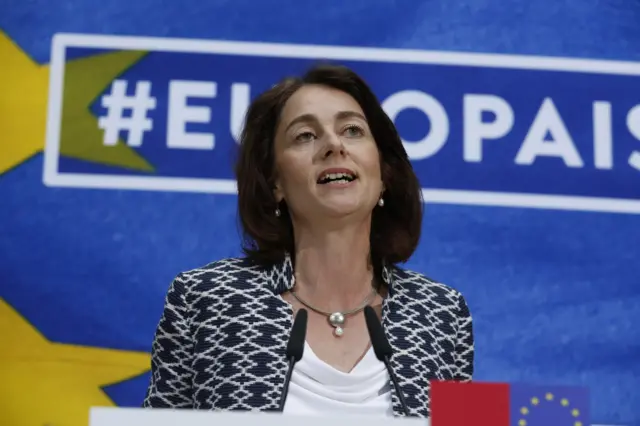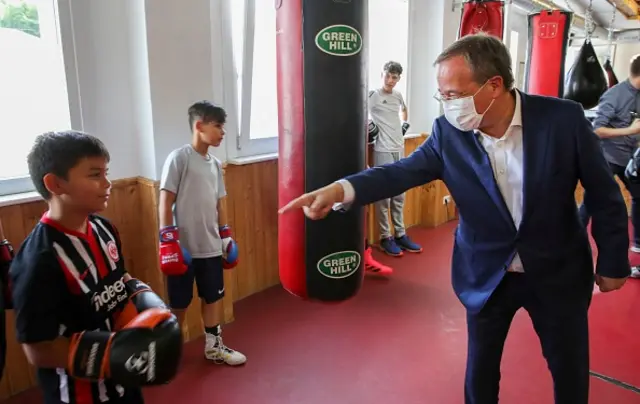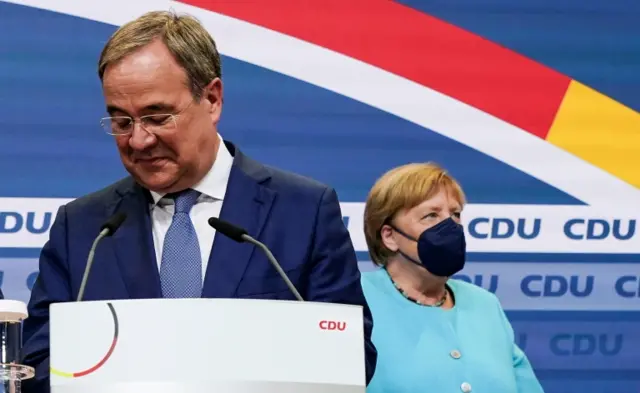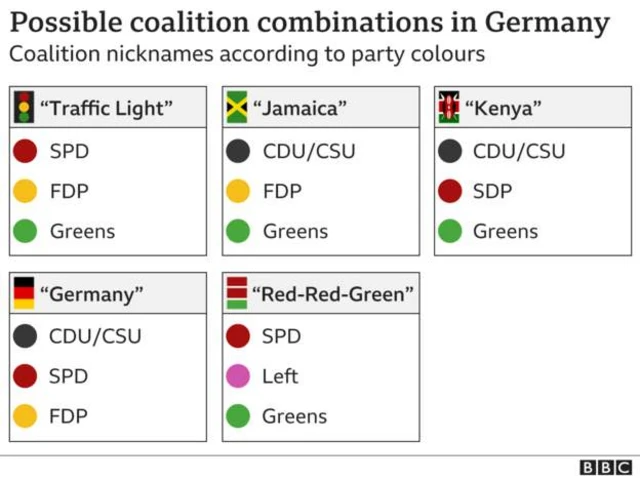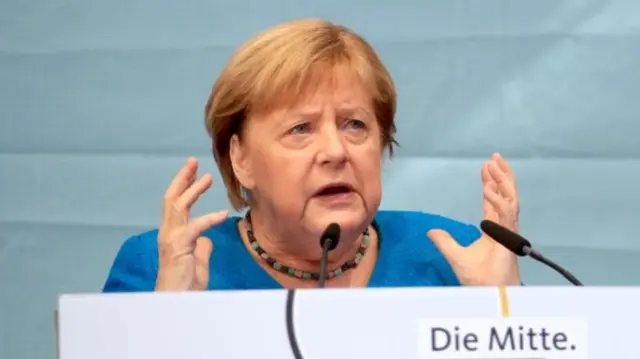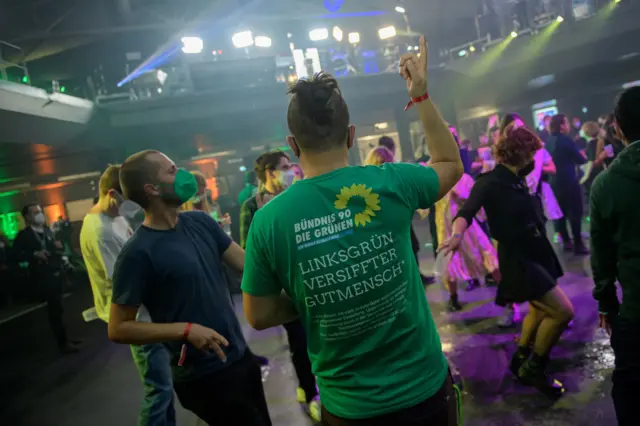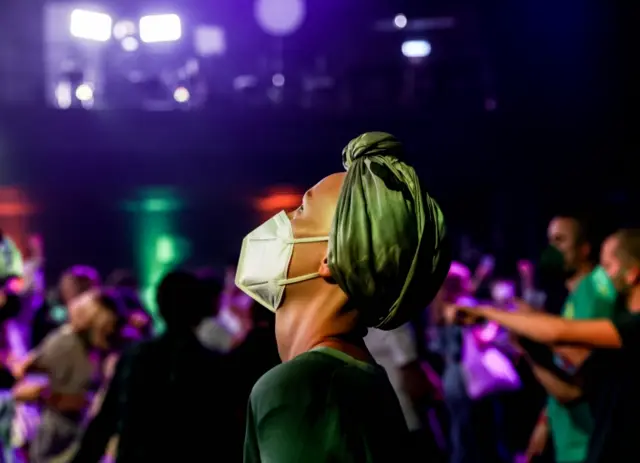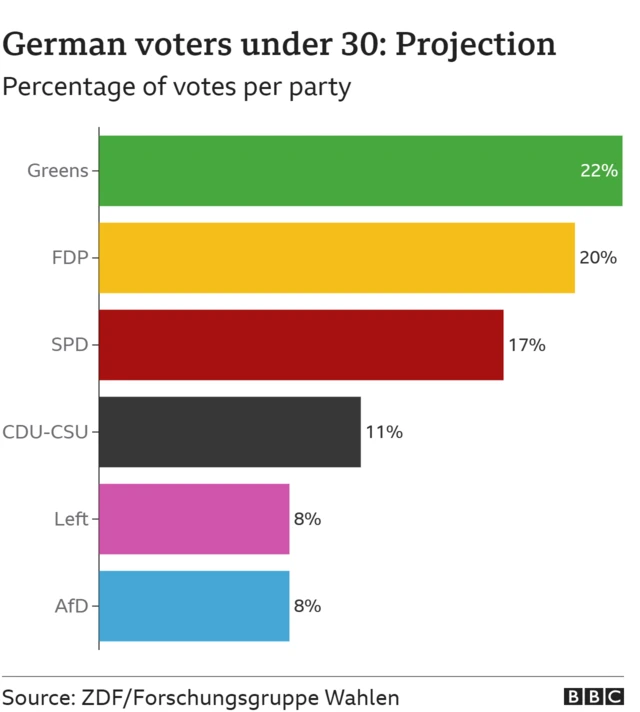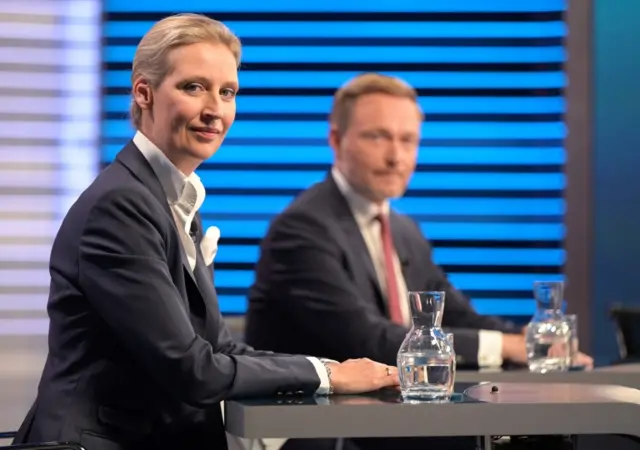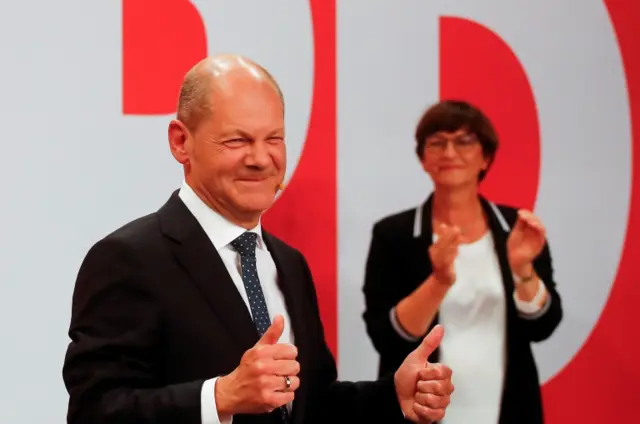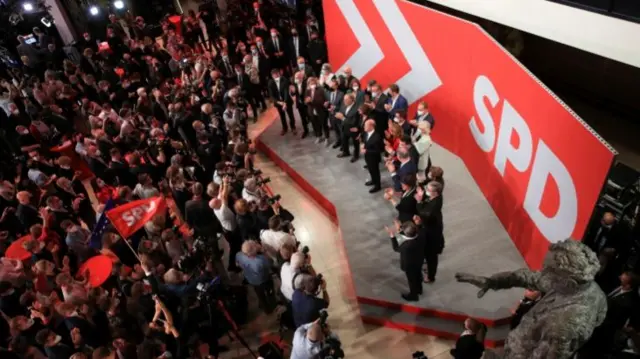Thanks for following our live coveragepublished at 00:47 BST 27 September 2021
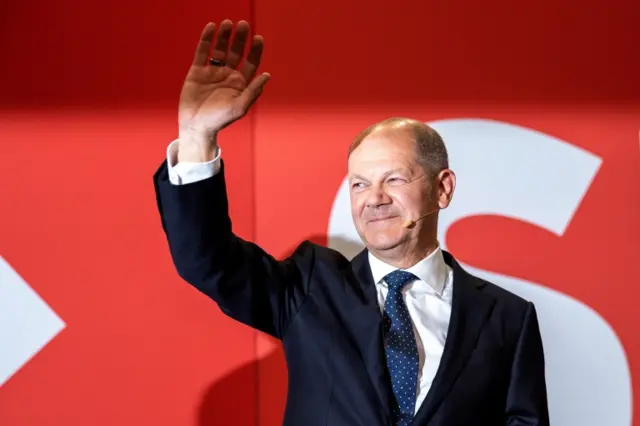 Image source, EPA
Image source, EPAThank you for following our live coverage of Germany's elections - which will, eventually, see a replacement for Angela Merkel as chancellor voted in by the new MPs.
We're wrapping up our coverage now, but here are the main things you need to know from election night:
- Projected results show the centre-left Social Democrats almost two percentage points ahead of the conservative Christian Democrats. We are still awaiting preliminary final results
- The SPD candidate for chancellor, Olaf Scholz, said his party had a clear mandate to rule
- But the conservatives' candidate, and Angela Merkel's chosen successor, Armin Laschet, vowed to do everything he could to build a government
- The parties which came third and fourth, the Greens and the liberal FDP, will be key to forming a governing coalition
- Both main party leaders said they wanted a new government to be in place before Christmas
- The task facing Merkel's successor is to lead Europe's foremost economy over the next four years, with climate change at the top of voters' agenda.
You can read our full news story on the election here.
